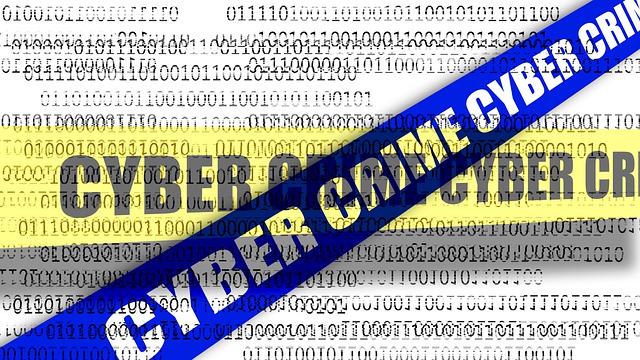MetaMask Bitcoin Wallet Phishing Scam
Unveiling the Security Threats to MetaMask Users
MetaMask, the widely embraced browser extension and mobile wallet, stands as a fortress for securely storing and managing Ethereum and its tokens. With millions of users globally, it’s a go-to choice for cryptocurrency enthusiasts. However, the digital realm is not without its pitfalls, and MetaMask has become a prime target for phishing attacks.
Understanding Phishing Attacks on MetaMask
Phishing, a cybercrime form, manipulates users into divulging sensitive data, like login credentials or private keys, by masquerading as a trustworthy entity. MetaMask, unfortunately, hasn’t been spared from these illicit activities.
The Deceptive World of Fake MetaMask Websites
Phishers often employ the tactic of crafting fake MetaMask websites or browser extensions that mirror the authentic ones. These counterfeits may lurk on social media, emails, or even official app stores, aiming to trick users into downloading and installing them. Once installed, users are coerced into entering their private key or seed phrase, providing the attacker with access to their funds.
Beware of Impersonation in Support Channels
Another method phishers employ involves creating imitation MetaMask support channels on social media or websites. Posing as the MetaMask team, they offer assistance, asking users for sensitive information like private keys or seed phrases under the guise of aiding in account recovery.
Emails: A Stealthy Breeding Ground for Phishing
Phishing attacks extend into emails, where attackers pose as MetaMask or related services. Users receive emails urging them to follow links leading to fake websites or to disclose sensitive information. These phishing emails meticulously replicate official MetaMask correspondence, leveraging the brand’s logo and branding.

Guarding Against MetaMask Phishing Attacks
To shield yourself from potential MetaMask phishing threats, adopting a proactive stance is crucial.
Verify Sources: The First Line of Defense
Always scrutinize the authenticity of websites, browser extensions, or social media accounts claiming association with MetaMask. The official MetaMask website is https://metamask.io/, and browser extensions can be safely downloaded from the Chrome Web Store or Firefox Add-ons Store. When in doubt, check the digital signature for legitimacy. Never disclose your private key or seed phrase to any uncertain website or extension.
Bolster Your Device’s Security
Ensure the security of your computer and mobile device by installing and updating reliable antivirus software. Exercise caution with email and social media links, steering clear of suspicious ones. If an email or message solicits your private key or seed phrase, recognize it as a phishing attempt.
Leverage MetaMask’s Built-In Protection
Familiarize yourself with MetaMask’s phishing warning system, a built-in protection mechanism that alerts users to reported phishing sites. When visiting a suspicious site, a warning message atop your browser window gives you the choice to proceed or retreat.
Navigating MetaMask Email Scams
MetaMask email scams pose a specific threat, attempting to deceive users into divulging sensitive information. To fortify your defenses:
Verify Email Sender
Examine the sender’s email address meticulously. Legitimate MetaMask emails originate from official domains like @metamask.io. Exercise caution if the email address seems suspicious or employs a different domain.
Avoid Clicking Suspicious Links
Resist clicking on links in emails that appear suspicious or unexpected. Instead, directly access the official MetaMask website by typing the URL into your browser or using a bookmark.
Scrutinize Email Content
Approach emails with urgency, threatening language, or demands for immediate action with skepticism. Genuine MetaMask communications are clear, professional, and do not pressure you into rushed decisions.
Enable Two-Factor Authentication (2FA)
Enhance your MetaMask account security by enabling Two-Factor Authentication (2FA). This extra layer demands a second form of verification, such as a code sent to your mobile device, in addition to your password.
Rely on Official Sources
Only download or update MetaMask from official sources. Disregard emails claiming to provide updates or new versions of MetaMask and visit the official website or browser extension store directly.
Educate Yourself: Stay Informed
Stay abreast of common phishing tactics and scams. MetaMask and reputable organizations offer educational resources to help users recognize and steer clear of scams.
Contact MetaMask Support
If you suspect an email as a scam, directly contact MetaMask support through official channels to verify its legitimacy. Legitimate organizations seldom request sensitive information through email. Report phishing attempts promptly to the company’s support team for necessary action.
Conclusion: Safeguarding Your MetaMask Journey
In conclusion, while MetaMask stands as a secure haven for Ethereum enthusiasts, vigilance is paramount. To thwart phishing attacks, verify sources, fortify device security, leverage MetaMask’s built-in protection, and stay informed.
FAQs
- Is MetaMask immune to phishing attacks?
- While MetaMask incorporates security measures, users must remain vigilant to avoid falling victim to phishing attempts.
- How can I verify the authenticity of a MetaMask website or extension?
- Check the official MetaMask website (https://metamask.io/), download from trusted stores, and verify digital signatures.
- Why is Two-Factor Authentication (2FA) crucial for MetaMask users?
- 2FA adds an extra layer of security, requiring a second form of verification, enhancing protection against unauthorized access.
- What should I do if I receive an email requesting my private key or seed phrase?
- Treat it as a phishing attempt. Never share sensitive information via email and verify directly with MetaMask through official channels.
- How can I contribute to combating phishing?
- Report phishing attempts promptly to MetaMask support, aiding in their efforts to protect users from potential threats.




